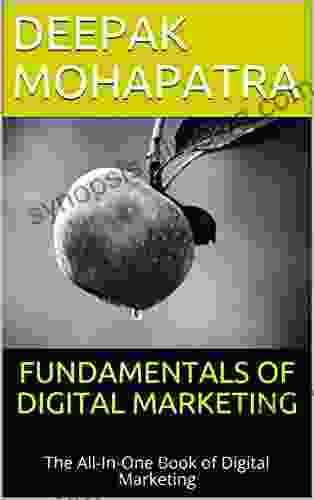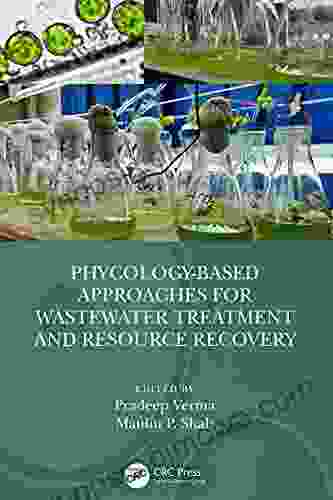Innovative Solutions for Wastewater Treatment and Resource Recovery: Phycology-Based Approaches

The world faces an unprecedented water crisis, with an estimated 2.2 billion people lacking access to safe drinking water. Simultaneously, the discharge of untreated or poorly treated wastewater poses a significant environmental and health hazard. Conventional wastewater treatment methods are often energy-intensive and result in the loss of valuable resources. Phycology-based wastewater treatment and resource recovery offer a promising solution to these challenges.
4.9 out of 5
| Language | : | English |
| File size | : | 17691 KB |
| Print length | : | 292 pages |
| Screen Reader | : | Supported |
Phycology: The Science of Algae
Phycology is the study of algae, a diverse group of photosynthetic microorganisms. Algae have a remarkable ability to absorb nutrients and sunlight, transforming them into biomass and other valuable products. This makes them ideal candidates for wastewater treatment and resource recovery.
Phycology-Based Wastewater Treatment
Phycology-based wastewater treatment involves the cultivation of algae in wastewater, utilizing the algae to remove pollutants and transform wastewater into a valuable resource. The algae absorb nutrients, such as nitrogen and phosphorus, from the wastewater, effectively reducing their concentration and preventing eutrophication. Additionally, the photosynthesis process releases oxygen into the water, improving water quality.
Through photosynthesis, algae also produce valuable biomass that can be harvested and utilized for various purposes, including:
- Biofuel production: Algae-derived biofuels offer a sustainable alternative to fossil fuels, reducing greenhouse gas emissions.
- Nutrient recovery: The harvested biomass is rich in nutrients, which can be recovered and recycled as fertilizer or animal feed.
- Bioplastics: Algae can be used to produce biodegradable and sustainable bioplastics, reducing plastic waste.
Resource Recovery from Wastewater
Phycology-based wastewater treatment not only purifies wastewater but also recovers valuable resources, including:
- Water: The treated wastewater can be reused for various purposes, such as irrigation, industrial processes, and even drinking water after further purification.
- Nutrients: The nutrients recovered from the algae biomass can be utilized as fertilizer or animal feed, reducing the need for synthetic fertilizers and supporting sustainable agriculture.
- Energy: The algae biomass can be converted into biofuel, providing a renewable and sustainable source of energy.
Benefits of Phycology-Based Approaches
Phycology-based wastewater treatment and resource recovery offer numerous benefits over conventional methods, including:
- Sustainability: Phycology-based approaches utilize renewable resources and produce minimal waste, making them environmentally sustainable.
- Energy efficiency: Algae cultivation utilizes sunlight as the primary energy source, reducing energy consumption.
- Resource recovery: Phycology-based approaches enable the recovery and utilization of valuable resources from wastewater.
- Cost-effectiveness: These approaches can be cost-effective in the long run due to resource recovery and energy savings.
Applications of Phycology-Based Approaches
Phycology-based wastewater treatment and resource recovery have a wide range of applications, including:
- Municipal wastewater treatment: Treating wastewater from cities and towns to improve water quality and recover resources.
- Industrial wastewater treatment: Treating wastewater from industrial facilities to comply with environmental regulations and recover valuable resources.
- Agricultural wastewater treatment: Treating wastewater from farms to reduce nutrient runoff and promote sustainable agricultural practices.
- Water reuse: Producing reclaimed water for irrigation, industrial processes, and other non-potable uses.
Phycology-based wastewater treatment and resource recovery present a transformative approach to addressing water scarcity, nutrient recovery, and energy generation challenges. By utilizing the power of algae, these approaches offer sustainable and cost-effective solutions for wastewater management. As the world continues to face water and environmental crises, phycology-based approaches are poised to play a pivotal role in creating a more sustainable and resilient future.
4.9 out of 5
| Language | : | English |
| File size | : | 17691 KB |
| Print length | : | 292 pages |
| Screen Reader | : | Supported |
Do you want to contribute by writing guest posts on this blog?
Please contact us and send us a resume of previous articles that you have written.
 Book
Book Novel
Novel Page
Page Chapter
Chapter Text
Text Story
Story Genre
Genre Reader
Reader Library
Library Paperback
Paperback E-book
E-book Magazine
Magazine Newspaper
Newspaper Paragraph
Paragraph Sentence
Sentence Bookmark
Bookmark Shelf
Shelf Glossary
Glossary Bibliography
Bibliography Foreword
Foreword Preface
Preface Synopsis
Synopsis Annotation
Annotation Footnote
Footnote Manuscript
Manuscript Scroll
Scroll Codex
Codex Tome
Tome Bestseller
Bestseller Classics
Classics Library card
Library card Narrative
Narrative Biography
Biography Autobiography
Autobiography Memoir
Memoir Reference
Reference Encyclopedia
Encyclopedia Kristen Palana
Kristen Palana David Roberts
David Roberts Kyung Suk Oh
Kyung Suk Oh David Downie
David Downie David Lindo
David Lindo Marie Sontag
Marie Sontag David Owen
David Owen Dayne Edmondson
Dayne Edmondson David P Perlmutter
David P Perlmutter Dipanjan Sarkar
Dipanjan Sarkar Debbie G Hall
Debbie G Hall Davy Fitzgerald
Davy Fitzgerald Laxuri Art
Laxuri Art David Kuzio
David Kuzio David Lee Morgan
David Lee Morgan Neale Martin
Neale Martin Srijit Mondal
Srijit Mondal Debashis Sarkar
Debashis Sarkar Katherine C Zubko
Katherine C Zubko Jan Kruys
Jan Kruys
Light bulbAdvertise smarter! Our strategic ad space ensures maximum exposure. Reserve your spot today!

 Yasunari KawabataGreat Things to See and Do in Door County, Wisconsin: A Nature Lover's...
Yasunari KawabataGreat Things to See and Do in Door County, Wisconsin: A Nature Lover's...
 Douglas AdamsAstro Girls Celestial Bond: An Enchanting Tale of Science, Friendship, and...
Douglas AdamsAstro Girls Celestial Bond: An Enchanting Tale of Science, Friendship, and... Roy BellFollow ·8.4k
Roy BellFollow ·8.4k Bo CoxFollow ·16.7k
Bo CoxFollow ·16.7k Justin BellFollow ·19.5k
Justin BellFollow ·19.5k Neal WardFollow ·13.7k
Neal WardFollow ·13.7k Steven HayesFollow ·13.9k
Steven HayesFollow ·13.9k Noah BlairFollow ·4.8k
Noah BlairFollow ·4.8k W.H. AudenFollow ·7.6k
W.H. AudenFollow ·7.6k Guillermo BlairFollow ·3.5k
Guillermo BlairFollow ·3.5k

 Aron Cox
Aron CoxMastering Project Management: The Ultimate Guide to...
In today's competitive...

 Dominic Simmons
Dominic SimmonsLet's Build Sue Fliess: Unleash the Polychrome Master...
Chapter 1: The...

 Mason Powell
Mason PowellMaster the Digital Marketing Landscape: Fundamentals of...
In the age of digital...

 Aubrey Blair
Aubrey BlairUncover the Secrets of Ancient Blades and Enchanting...
Embark on an Enchanting Journey into the...

 Shannon Simmons
Shannon SimmonsUnleash the Spooktacular with Spooky Crochet Tutorials...
Prepare to be spooked...

 Cade Simmons
Cade SimmonsImmerse Your Little Ones in a World of Enchantment with...
Nursery rhymes have forever ignited the...
4.9 out of 5
| Language | : | English |
| File size | : | 17691 KB |
| Print length | : | 292 pages |
| Screen Reader | : | Supported |








